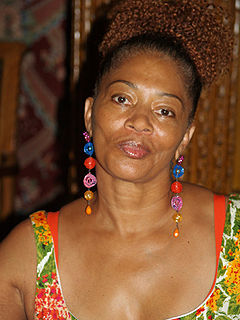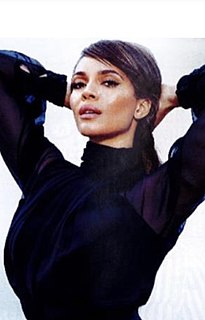A Quote by Terry McMillan
I don't trust white critics' judgment about most things that deal with black life, particularly when a black person is the creator.
Quote Topics
Related Quotes
I think the play offers (white Americans) a different way to look at black Americans For instance, in 'Fences' they see a garbageman, a person they don't really look at, although they see a garbageman every day. By looking at Troy's life, white people find out that the content of this black garbageman's life is affected by the same things- love, honor, beauty, betrayal, duty. Recognizing that these things are as much part of his life as theirs can affect how they think about and deal with black people in their lives.
I've never seen a sincere white man, not when it comes to helping black people. Usually things like this are done by white people to benefit themselves. The white man's primary interest is not to elevate the thinking of black people, or to waken black people, or white people either. The white man is interested in the black man only to the extent that the black man is of use to him. The white man's interest is to make money, to exploit.
As a black person on the outside, because there's so much black art and so much of black people's work circulating, so many people imitating what black people do, you would think that there'd be more black people on the business side. It didn't cross my mind that every label head, for the most part, is a white guy.
White people scare the crap out of me. I have never been attacked by a black person, never been evicted by a black person, never had my security deposit ripped off by a black landlord, never had a black landlord, never been pulled over by a black cop, never been sold a lemon by a black car salesman, never seen a black car salesman, never had a black person deny me a bank loan, never had a black person bury my movie, and I've never heard a black person say, 'We're going to eliminate ten thousand jobs here - have a nice day!'
The thing about being black in a mostly white industry, particularly as a black male, is you can't lose your temper in the same way. Essentially, you are an angry black man losing his temper in a way that's unprofessional, as opposed to an industry that has protected unprofessional white males in perpetua.
Nowadays, people shoot digitally and it's all in color, but you press a button and it all goes to black and white. But it's not lit for black and white. So, it's a tricky thing. If you're going do black and white, you better remember to separate things with light, because color ain't gonna be there.







































